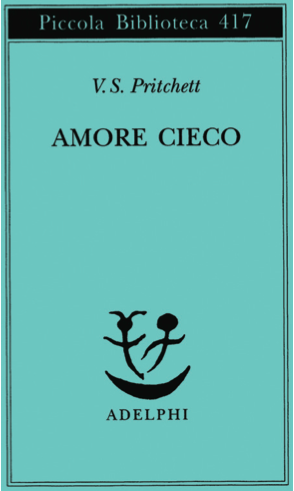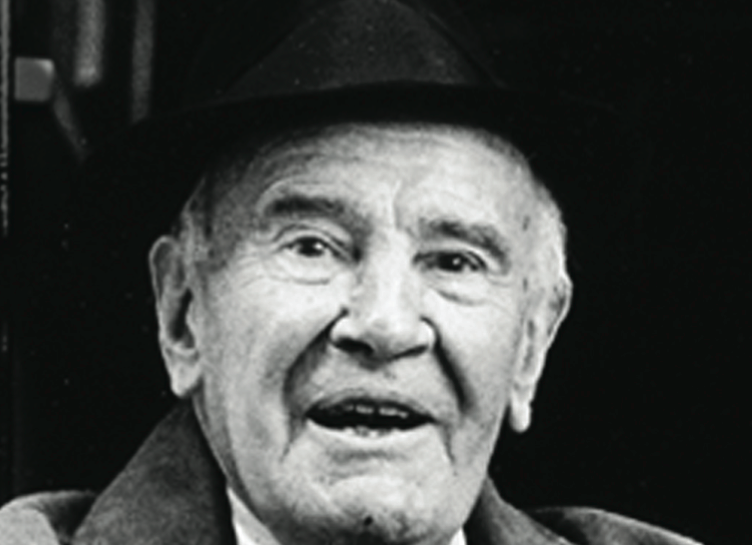 How does a blind person love? How does someone who does not want to be seen love? How does a person who takes advantage of the weakness of others love? The author has titled his book "Blind Love", but he could have entitled it Human Weakness or Lonely People because blindness, understood as the impossibility to see with the eyes, is not the predominant feature of the book. The co-protagonist, Mr. Armitage, is a man who became blind and was left by his wife because of his disability. Rich, intelligent and seemingly detached, he is a lawyer who only uses his white cane when travelling to London, while in his own country estate he moves with absolute ease. The other co-protagonist, Mrs. Johnson, is his assistant. She is hiding a secret, a huge scar extending from the neck down across her chest. Always kept hidden, she had not even told of the unsightly scar her husband who maybe even for that very reason (for the scar or because she had not said anything to him?) sent her packing while on their honeymoon. The other character is Mr. Smith, a disloyal mystic healer. He takes advantage of Armitage’s blindness to make money and discovers Johnson’s birthmark one day that, sunbathing near the pool, she was unaware she was being seen. Smith will not tell her, leaving her in anxiety and self-doubt, unsure whether she has been seen or not, fragile and filled with shame.
How does a blind person love? How does someone who does not want to be seen love? How does a person who takes advantage of the weakness of others love? The author has titled his book "Blind Love", but he could have entitled it Human Weakness or Lonely People because blindness, understood as the impossibility to see with the eyes, is not the predominant feature of the book. The co-protagonist, Mr. Armitage, is a man who became blind and was left by his wife because of his disability. Rich, intelligent and seemingly detached, he is a lawyer who only uses his white cane when travelling to London, while in his own country estate he moves with absolute ease. The other co-protagonist, Mrs. Johnson, is his assistant. She is hiding a secret, a huge scar extending from the neck down across her chest. Always kept hidden, she had not even told of the unsightly scar her husband who maybe even for that very reason (for the scar or because she had not said anything to him?) sent her packing while on their honeymoon. The other character is Mr. Smith, a disloyal mystic healer. He takes advantage of Armitage’s blindness to make money and discovers Johnson’s birthmark one day that, sunbathing near the pool, she was unaware she was being seen. Smith will not tell her, leaving her in anxiety and self-doubt, unsure whether she has been seen or not, fragile and filled with shame.
Yet this little man, who lives on the hopes and credulity of people, manages to tell Johnson: "I don’t want to hear you say that Mr. Armitage likes this place because he doesn’t see it. Don’t pin this on his blindness. This will hamper him. He sees it." The protagonists only go by their last name preceded by Mr. and Mrs. in a way to create a sense of anonymous coldness to the characters. But each of them has strengths and weaknesses and is torn between these two aspects. Armitage and Johnson become lovers. She is anxious because she doesn’t know if he has noticed the birthmark, and he is jealous because her ex-husband was able to see her with his eyes while he may only know her body with his hands.  Other phrases cast doubt on what this book seems to imply to the reader: Johnson "if you really want to know what are shame and pride, try marrying someone who is disgusted by your body" or, in another context, Armitage says, "if you did not see, you would have more fear of humiliation". Love, shame, jealousy, lack of self-confidence, fear. The protagonists experience these feelings which are the basis of the story, but we too can experience them. How does the novel end? Is it so important to know?
Other phrases cast doubt on what this book seems to imply to the reader: Johnson "if you really want to know what are shame and pride, try marrying someone who is disgusted by your body" or, in another context, Armitage says, "if you did not see, you would have more fear of humiliation". Love, shame, jealousy, lack of self-confidence, fear. The protagonists experience these feelings which are the basis of the story, but we too can experience them. How does the novel end? Is it so important to know?
Blind love
Love Shame Jealousy. Journey between mistrust in oneself and fear of the other
Irene Schiff




.png)